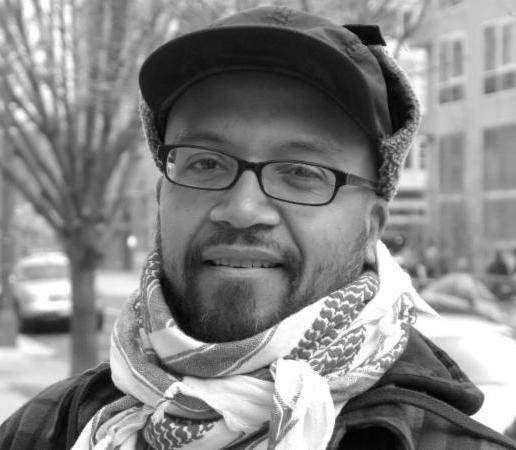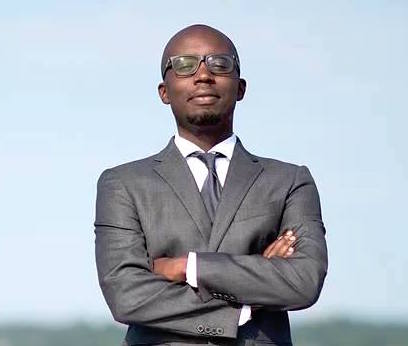Daniel del Pielago, Amber Harding and Jeremiah Lowery: Public housing tenants shouldn’t pay for CFO’s power grab
There’s a major battle being waged between Chief Financial Officer Jeffrey DeWitt and the DC Council that impacts DC’s balance and division of power. Let’s not forget, however, that the outcome will have major repercussions for the health and safety of the 20,000 DC residents who live in public housing — many of whom endure daily the miseries of crumbling buildings, lead poisoning, rodent infestation and mold.

The DC Housing Authority recently identified 2,500 units as being in critical need of immediate repair, estimating the cost to be between $1 billion and $1.5 billion over the next 10 years. Yet Mayor Muriel Bowser did not set aside one extra dime for public housing repairs in her budget proposal. Thankfully, the DC Council did, devoting $1 million from a tax abatement clawback from the Line hotel and $24.5 million from a surplus they found in Events DC — all told, enough to fix up 400 of the 2,500 units in dire need. The money from Events DC, however, is apparently gone now, swept up by an overreaching “independent” CFO who has decided he knows better than our elected representatives how our tax dollars should be spent.
Events DC is the independent convention, sports and entertainment agency funded largely by tax revenues. It receives about one-third of DC’s 14.5 percent hotel tax and one-tenth of the 10 percent restaurant tax. It gets more money from these dedicated taxes than it needs for annual bond payments and other daily operations, resulting in a massive surplus that has accumulated over the years — hundreds of millions of dollars. Some of that money is subject to bond agreements that require a certain amount of reserve. DeWitt, however, admits that Events DC had $48 million that should have gone to DC’s general fund to be spent on government services, but instead sat at Events DC for years — discovered only when the DC Council pointed it out. This $48 million in excess reserves has accumulated despite the CFO being an ex officio member of the Events DC board, and the agency having been (until this year) under the jurisdiction of the council’s Committee on Finance and Revenue, chaired by Ward 2 Council member Jack Evans.

The Washington Legal Clinic for the Homeless and the Fair Budget Coalition identified this underspending more than a year ago, with the help of at-large Council member Elissa Silverman’s office. This year, we dove into the details, pulling seven fiscal years of records and presenting financial charts at hearings and in meetings with council members and staff. We, along with many other allies, incorporated the Events DC surplus into a lengthy list of potential revenue and funding sources that was presented to the council. Virtually everyone on the council agreed that funding public housing repairs should be a top budget priority, but until Ward 6 representative Charles Allen and Chairman Phil Mendelson stepped up and developed the Events DC proposal, we feared that no money would be found for public housing.
It was a textbook case of community members using their democratic rights to promote the public interest, and elected officials responding with real solutions. It showed that the system can work.
Then, DeWitt refused to certify the budget. Chairman Mendelson stayed strong, and vowed to fight for the funds. The CFO claimed that the funds were tied to bond agreements and that DC would be in violation of the law and/or our “word” to investors, thereby risking the city’s bond rating. Mendelson pushed back again and the council voted to approve the appropriation. Then the CFO, without notifying anyone in advance and before the final vote on the budget, took $48 million out of the Events DC account and swept most of it into DC’s cash reserves, with the remainder going into two other funds (consistent with the law around our reserves). Several days after doing this, he sent the council a letter once again chastising them for being irresponsible and risking DC’s bond rating. Then, he admitted that the council had been right: there was in fact about $48 million in unobligated excess funds. But the money was gone. He had decided unilaterally that no elected official would get a chance to decide how to spend it.
The press seems to have missed the real story here to some degree. Yes, it is unprecedented to have a budget passed that is at risk of not being certified. The bigger issue, though, is that the very person threatening not to certify the budget is the one who purposely created the problem. What could have been an easily rectified $1 million mistake — the amount of the discrepancy between the CFO’s confirmation of $48 million in excess reserves in the Events DC account and the council’s allocation of $49 million last month for housing repairs and other items — is now a $49 million hole in the budget. Meanwhile, the fact remains that the council’s proposed $24.5 million expenditure would have been enough to transform 400 unsafe, unhealthy and nearly uninhabitable units into safe homes for low-income DC residents, if the CFO had not swept the funds from the account.
Detrice Belt, president of the Barry Farm Tenants and Allies Association and a public housing resident, aptly summed up the issues at stake: “Families, elders, those with disabilities living in public housing really need help, and this funding would go a long way in improving their quality of life,” she said in a recent conversation with Empower DC. “After many years of advocating for these funds, it’s good to see that our city council agrees with us, and it’s a shame that the CFO is not allowing the uplift of public housing residents. If this type of money had been available for Barry Farm, perhaps it would have never been demolished. This money is needed to avoid the further demolition of public housing and the displacement of its residents.”
Fortunately for Detrice and other public housing residents, the DC Council is not caving in. They are rightly insisting on their power of the purse. Public housing residents — and all DC residents — are invested in this fight and should support the council. On this issue of who has the right to determine how to spend $48 million of taxpayer money, the council is on bedrock solid ground, and we stand with them. On the issue of public housing repairs, our low-income neighbors cannot wait another year, risking lead poisoning and other debilitating health conditions, for our elected leaders to find the money. For places like Barry Farm, years of gradual disinvestment — the result of underfunding from the federal government and mismanagement by DCHA — have already led to the displacement of hundreds of public housing residents. If the council wins this battle, it would be the first step to prevent others from suffering the same fate.
Daniel del Pielago is organizing director at Empower DC; Amber Harding is an attorney at the Washington Legal Clinic for the Homeless; and Jeremiah Lowery is chair of DC for Democracy.
About commentaries
The DC Line welcomes commentaries representing various viewpoints on local issues of concern, but the opinions expressed do not represent those of The DC Line. Submissions of up to 850 words may be sent to editor Chris Kain at chriskain@thedcline.org.



This is a fight with Federal Authorities and HUD. DC taxpayers should NOT have to pay to repair Federal properties. DC For Democracy and the Empower DC lobby for every sad and failed backward social idea. Time for mainstream residents to step up and say stop wasting our taxpayers dollars!